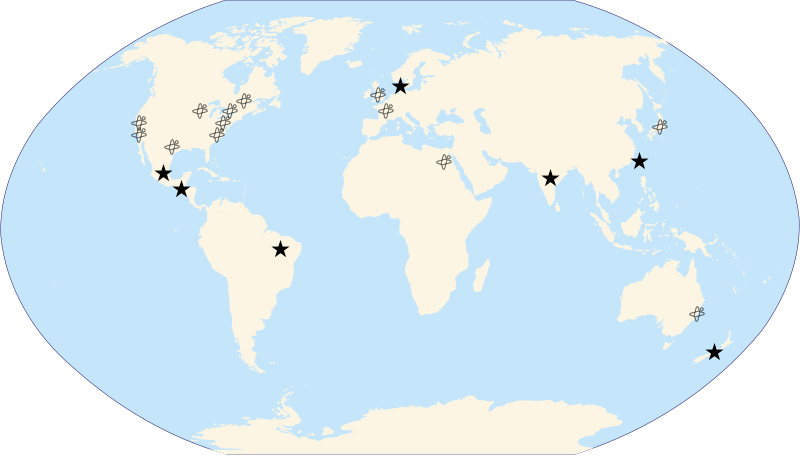Over the last 16 years since its founding, CLIC has brought together researchers from around the world to pool data from case-control studies of childhood leukemia and, since 2019, childhood solid tumors, to better understand their causes. CLIC previously concentrated on analyzing its rich trove of data from parental questionnaire, medical records, and environmental measurements, but with the new CLIC Genomics Project, we are additionally focusing on pooling genotypes. In fact, CLIC is now assembling and analyzing one the world’s largest genomic database for childhood cancers. Since much of the genomic data is attached to our existing epidemiologic data, CLIC may now conduct some of the first studies of gene-environment interaction in these rare diseases. Drs. Logan Spector and Saonli Basu of the University of Minnesota described the CLIC Genomics Project in an interview earlier this year.
In terms of scope: CLIC has researchers from six continents contributing existing germline genomic data for approximately 14,000 children with leukemia and 9,000 children with solid tumors. The data comes from epidemiological studies with diverse geographic and ancestral populations. We will use publicly available data sets to complement the primary data collected by CLIC researchers. Once everything is integrated, we expect to have data for over 23,000 children with leukemia, 18,000 children with solid tumors, and 186,000 children without cancer.
Only through international cooperation is CLIC able to accomplish this ambitious project. The University of Minnesota serves at the Coordinating Center for the project. There are three Analysis Centers, which receive and analyze genomic data for their regions: the University of Southern California (USC), USA for the Americas; the Institut national de la santé et de la recherche médicale (Inserm), France for Europe and Africa; and the University of Newcastle, Australia for Asia and Oceania. Currently CLIC has 13 Contributing Centers, which have provided genomic data, and we are building more partnerships with a focus on low- and middle-income countries (see map).
In the coming years CLIC will be maximizing the use of this unique genomics resource to fully understand why kids get cancer.
The CLIC Genomics Project is funded by a five-year National Institutes of Health (NIH) Research Project Grant (R01) with additional support from the Leukemia & Lymphoma Society (LLS) and Children’s Cancer Research Fund (CCRF).

 = CLIC Genomics Project Contributing Centers
= CLIC Genomics Project Contributing Centers = Publicly available data sets or future Contributing Centers
= Publicly available data sets or future Contributing Centers
